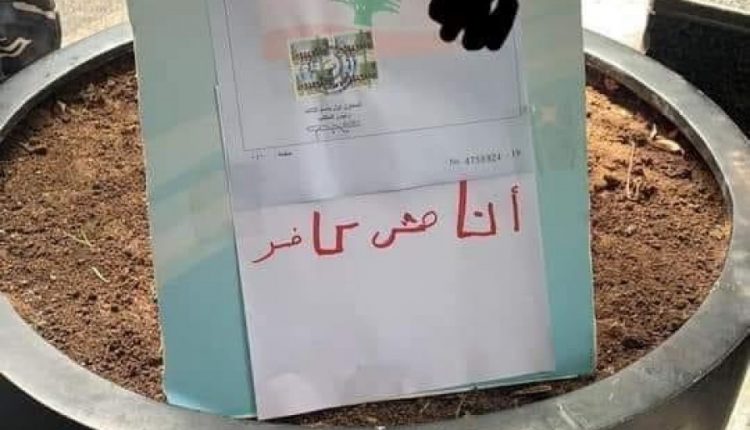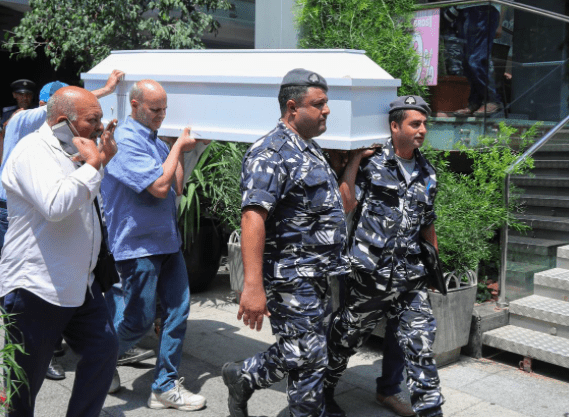By Nour El-Miligi
Lebanon has been facing a huge crisis on both political and economic levels, and the novel coronavirus has further contributed to people facing more job discharges and struggling for a living. According to World Bank statistics, 50% of Lebanese are living below the poverty line, and 30% are considered to be living in extreme poverty. Expectations are that any possible updates to the numbers would only manifest more poverty.
A 62-year-old public bus driver, Mohamed Ali El-Hak, survived by a wife and daughter, clearly couldn’t handle the economic crisis. Being incapable of financially supporting his family since he was the primary breadwinner, he decided to stand in the middle of a road beside a coffee shop and shoot himself in broad daylight. Passers-by witnessed him putting an end to his life, leaving a note that read, “I’m not a heretic,” which are the lyrics of a Lebanese song usually followed by the line, “But hunger is.” A Lebanese flag was left by the note.

The incident comes in light of the state of despair and misery reached by the vast majority of Lebanese who have been suffering economically for months now. The tragedy has provoked frustration and anger within Lebanon; citizens who protested along Hamra Street, where the incident occurred, have been chanting against the policies that led the country to economic collapse, alongside dozens of bus drivers who protested in the City of Sidon right after the news broke, putting the blame on the economic situation that pushed their colleague to end his life.



